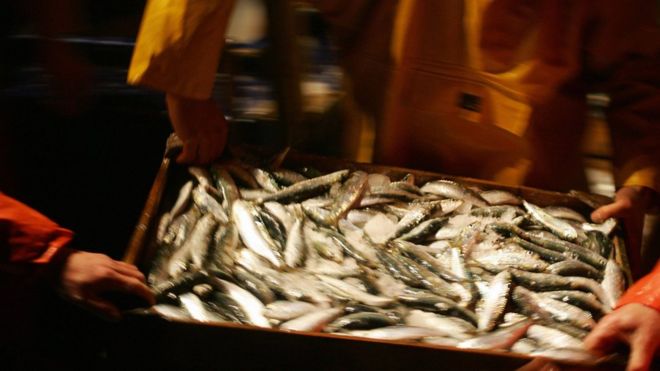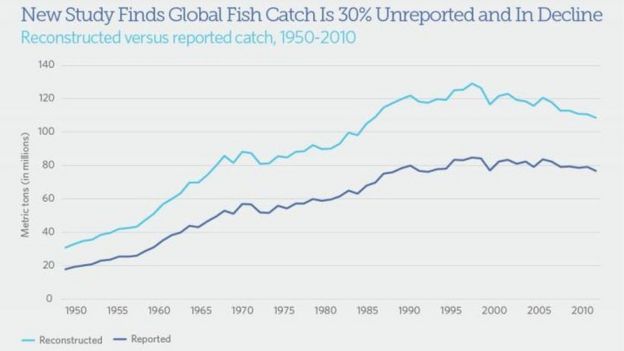The amount of fish taken from the world's oceans over the last 60 years has been underestimated by more than 50%, according to a new study.

Global fish take based on official figures underestimates the actual catch size according to this study
Researchers say that official estimates are missing crucial data on small scale fisheries, illegal fishing and discarded by-catch.
The authors argue that global fishing catches are now declining rapidly because stocks have been exhausted.
But other researchers have questioned the reliability of the new study.
The UN's Food and Agriculture Organisation (FAO) is the body that collates global statistics on fishing from countries all over the world.
According to their official figures, the amount of fish caught has increased steadily since 1950 and peaked at 86 million tonnes in 1996 before declining slightly to around 77 million tonnes in 2010.
But researchers from the University of British Columbia argue that the official figures drastically under-report the true scale of fishing.
They argue that the figures submitted to the FAO are mainly from large scale "industrial" fishing activities and do not include small scale commercial fisheries, subsistence fisheries as well as the discarded by-catch and estimates for illegal fishing.
The scientists say their "catch reconstruction" method give a far more accurate picture of the scale of the impacts of fishing around the world.
They say that reconstructed catches, that include estimates and data on the under-reported activities, show that the world took 53% more fish from the seas than the official figures indicate.
They argue that around 32 million tonnes of fish go unreported every year - more than the weight of the entire US population.
"The catches are all underestimated," said lead author Prof Daniel Pauly.
"The FAO doesn't have a mandate to correct the data that they get - and the countries have the bad habit of reporting only what they see - if they don't have people who report on a given fishery then nothing is reported. The result of this is a systematic underestimation of the catch and this can be very high, 200-300% especially in small island states, in the developed world it can be 20-30%."
Prof Pauly gave the Bahamas as an example where there was no reporting of fish caught by small scale fishers. But when the researchers dug a little deeper and went to the big hotels and resorts, they found invoices from small scale fishermen who sold their catch directly.
Not only have more fish been taken from the seas than have been reported say the authors, but the decline in fish caught since the mid 1990s has been far greater than the official figures show.

A graph showing the differences between the official figures and the reconstructed catch
From BBC Science/Environment
No comments :
Post a Comment